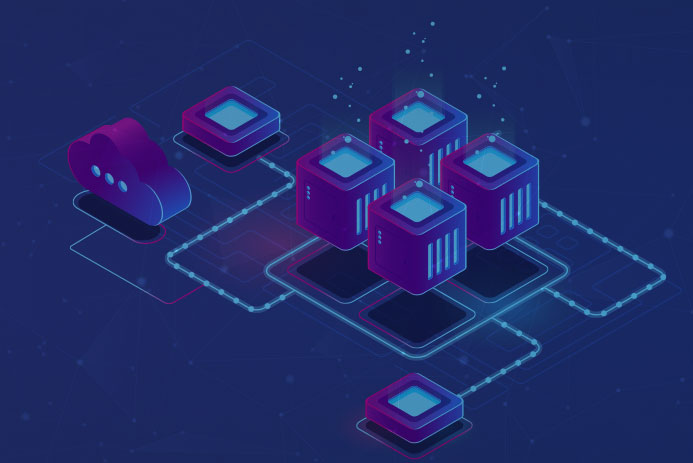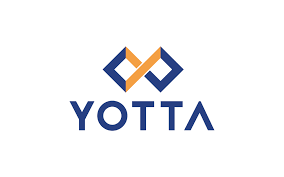Data Center
Data Center
Understanding data center and cloud services in the post Covid-19 world

With the prolonged lockdown and the resultant stay-at-home orders, businesses across India dealt with supply chain shortages and slowdowns and were re-aligning their IT infrastructure strategies to operate without on-premise access or having a reliable infrastructure to ensure business continuity and downtime prevention. The pandemic thus has fast-tracked the evolution of many businesses into becoming digitally native, and enterprises had to adopt new ways of working and upgrade their IT infrastructures aggressively.
The Covid-19 outbreak reinstated that India needs far more data center capacity than we currently have. Data centers were put to the test as a large workforce suddenly moved to remote working during the global crisis. Companies were able to access, manage and process their data from a remote location due to data center networks working full throttle, to the extent of data center services being classified as one of the essential services. The emergence and acceptance of the new normal – adoption of cloud and acceleration of digitisation – have now become the pillars of the business continuity strategies for the post-Covid-19 world.
The burgeoning demand
The demand for data center and cloud solutions was already on the rise due to data localisation, and it has further increased exponentially during the pandemic. Working from home has accelerated the demand for Software as a Service (SaaS), which is driving tremendous traffic to data centers. Organisations are looking to outsource and are inclined towards third party cloud and data center service providers. Global cloud migration services are expected to grow at a CAGR of about 24% between 2020 to 2024 as per the market research by Technavio. Data centers and cloud are undoubtedly an integral part of business continuity strategies of companies to run operations with a distributed workforce amid the lockdown successfully. According to Statista, the industry revenues are expected to increase to over $50 billion per year by 2023 due to the rise in cloud adoption and data center services by many companies.
Less investment, flexibility, and scalability are the key factors that are driving the rapid adoption of cloud computing solutions among SMEs and MSMEs. The proliferation of investments in emerging technologies like IoT, AI/ML, analytics, big data, and other advanced technologies have resulted in the rapid adoption of cloud and data center solutions.
Rapid development in data centers
To ensure competitive advantage and ensure the highest level of reliability possible, data center players are abandoning the traditional construction models and using new technologies to upgrade and increase efficiency. Companies now require highly scalable data centers which offer thorough assessment, better management, disaster recovery, and fault tolerance. Uptime Institute Tier IV certified data centers can operate without interruption even when one or more of components of the system fail by preventing disruptions arising from the failure point. A fault-tolerant data center can prove to be significant in disaster recovery strategy; the system can backup components in the cloud and restore critical systems quickly, even if a natural or industrial disaster destroys IT infrastructure.
Hybrid cloud is the way to go
Hybrid cloud is helping companies to work with a flexible cloud model that suits different workgroups. This type of cloud provides improved data and IT management to derive better efficiency and increased productivity. Companies can move heavy workloads between private and public cloud easily and do not require additional CAPEX. These benefits allow businesses to easily shift to an OPEX model and save significant costs during such unprecedented times. Organisations are recalibrating their plans in the post-Covid-19 environment to derive maximum benefits from the cloud and gain competitive advantage. Leveraging hybrid cloud services is essential to scale up the efforts, sustain in the present environment, and prepare for future disruptions.
Exploring managed services
Agility and continuity are extremely valuable for the businesses in the current times of crises. As it has been difficult lately to get access to data centers or manage captive data centers, companies are moving towards outsourced managed service providers. While the IT staff finds it challenging to manage the IT infrastructure remotely, they are relying on colocation hyperscale providers for network optimisation, installations, managed cloud, and security services. Even post Covid-19, businesses will have to understand their need to utilize managed services to continue providing support to their IT teams, focus on business continuity, processes and tools to keep their employees safe and productive.
Development of next-generation data centers includes moving to edge computing, enabling AI to innovate and automate processes, and integrating SDDC (Software-Defined Data Center) to access and manage tasks from a remote location. Amid the Covid-19 crisis, global corporate giants and prominent investors are focused on the rising potential market for digital infrastructure. The data center industry will therefore be a critical catalyst to the growth of emerging technologies. Hyper scalers are roping in big corporations with excellent credibility as their customers which is further luring investors to enter the data center market.
It is slowly becoming certain that the world will never be the same post-Covid-19. Instead, it will continue to innovate and transform to prosper the global economy in future, and this is where data centers and cloud will undoubtedly play an integral part.
Source: https://timesofindia.indiatimes.com/blogs/voices/understanding-data-center-and-cloud-services-in-the-post-covid-19-world/








